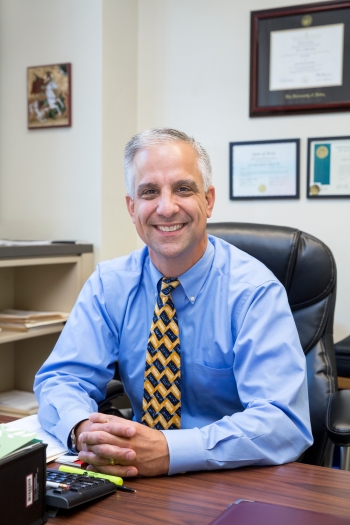
By
A National Institutes of Health grant will support research by School of Social Work Assistant Professor Scott Easton on middle-aged and older men who are coping with the effects of sexual abuse they endured in childhood.
The one-year $156,500 R03 Small Research Grant from the NIH National Institute on Aging will illuminate the experiences of a population that, amidst the growing awareness of child sexual abuse, has been generally overlooked, said Easton.
“Statistics have shown about 15 percent of adult men report a history of child sexual abuse,” said Easton, who in 2010 conducted one of the largest studies to date on this population. “These men – stigmatized, vulnerable and largely hidden – are at risk for depression, anxiety, PTSD, personality disorders, substance abuse and other psychiatric illnesses.
“Yet we know little about them and how they have dealt with the trauma they suffered as children. Why have some men demonstrated resilience while others have had great difficulty? And based on the experiences of those who have coped well, can we design evidence-informed interventions and treatments for those in the vulnerable group?”
Easton said his earlier work, which involved collecting data at one point in time from nearly 500 male survivors of child sexual abuse, was useful in identifying risk and protective factors for mental health issues. The new grant, he said, will broaden the scope of that previous study by incorporating a life course perspective, using data collected at several points in time and capitalizing on population-based sampling.
“Despite more public awareness of child sexual abuse, stigma still isolates men, and serves as a barrier to disclosure and seeking assistance,” said Easton. “The hope is we can develop knowledge and improve practice, thereby helping survivors reach more of their human potential.”
Dean of Social Work Alberto Godenzi said Easton’s grant, along with the K01 Mentored Research Scientist Development Award given recently by the Centers for Disease Control to Assistant Professor Erika Sabbath [see http://bit.ly/1oqSWMt] – the first such grant awarded to a SSW faculty member – points to a promising trend for the school: “We are taking important steps towards our strategic goal of increasing the percentage of federally funded research projects.”



